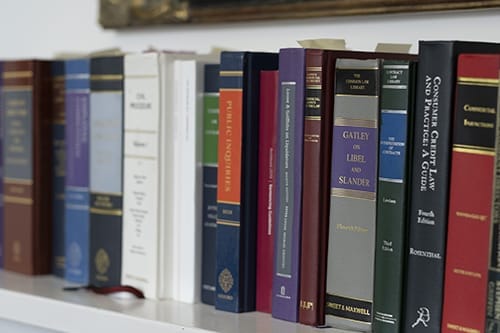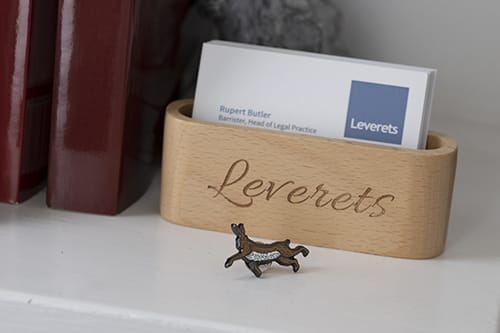In November 2023, Leverets secured settlements in London’s Commercial Court for two former Credit Suisse Bankers in Republic of Mozambique v Credit Suisse, Privinvest, VTB Capital and Others – also known as the ‘Tuna Bonds scandal’. Listed as one of the top 20 cases of 2023 by The Lawyer.
Considered one of the most notable cases of the year, the trial comprised 11 Commercial Court proceedings concerning the impact of alleged bribery and corruption on three sovereign guarantees purportedly executed by the Republic of Mozambique (the “Republic), with a combined value of US$2 billion. The Republic (and other parties) also brought claims for additional consequential losses, bringing the total value to above US$5 billion.
Leverets’ 27-strong multi-disciplinary team, led by Rupert Butler, Steph Davies, and Owen Vanstone-Hallam, played a pivotal role in finally bringing to an end this decade-old dispute and eventual trial, described by Mr Justice Robin Knowles CBE as a “very high-value and complex interwoven multi-party case”.
A bit of background
Between 2012 and 2016, Credit Suisse and Russian bank VTB arranged over $2bn worth of loans to state-owned companies to fund government-sponsored investment schemes, including various maritime security projects and a tuna fishing fleet. The projects (both hardware and logistical) were to be delivered by the Lebanese shipbuilders Privinvest. The borrowing was guaranteed by the Republic pursuant to sovereign guarantees. The guarantees were governed by English law, with a jurisdiction clause in favour of the courts of England and Wales.
However, it was claimed that the Lebanese shipbuilders arranged “significant kickbacks” worth $137m, to secure the deals and to secure more favourable terms on the loans. After the scandal was publicised, donors such as the World Bank and IMF cut aid to the Republic, allegedly resulting in the collapse of its economy.
Our role
The team secured settlements for Mr Singh and Mr Pearse, thereby extricating them both from any suggestion that they were involved in, or had knowledge of, the corruption of Mozambican officials in deals struck by the state-owned companies with Lebanese shipbuilders Privinvest.
Mr Singh and Mr Pearse have always accepted responsibility for taking kickbacks in return for reducing the fees payable to Credit Suisse by Privinvest, for which they forfeited all the money they gained to the US Department of Justice in 2019.
Over the course of 4 years, we represented the ex-bankers throughout criminal proceedings in the US, Mozambique, and Lebanon, liaising closely with magic circle and international law firms (including Slaughter and May, Signature Litigation, Enyo Law, Weil Gotshal & Manges, and Peters & Peters), as well as the US Department of Justice, FBI, and Interpol. This led to us ultimately supporting our clients to a successful outcome in the multi-billion-dollar civil claims in London.
Securing the settlements represents not only a great outcome for the clients, but also perfectly demonstrates our “people not postcodes” approach, and ability to act on a level playing field with big firms in large-scale, high-value, complex international litigation. We were notably the only firm retained by its clients throughout the English proceedings (all other parties changed legal representation at some point), and the only firm without a London office. Yet we more than held our own in this clash of the titans.
What we did
A small and nimble practice by design, we were able to quickly scale up our core team of two solicitors and one barrister, to include 24 specialist document reviewers and 4 external barristers. Together we clocked up 55,000 billable hours, reviewed 100,000s of documents and secured our place as pivotal representatives in the case by:
- managing the competing cases and heavy demands of this enormous litigation;
- stewarding clients through criminal proceedings in the US in liaison with US attorneys, the Department of Justice, and the FBI;
- communicating with Interpol;
- monitoring and analysing proceedings in Mozambique, South Africa and Lebanon;
- managing media relations; and
- always ensuring we saw the English civil proceedings as part of a wider picture of proceedings worldwide.
We deployed state-of-the-art legal technology, so that every member of the team could work from any location with the same access to IT. This included:
- The use of a virtual courtroom to maintain the close working relationships across multiple jurisdictions.
- The use of an e-Discovery platform, RelativityOne, to handle the vast amounts of documents we were required to review. We increased our efficiency and productivity through the application of analytics, automation and AI.
- The use of a trial bundle platform, Opus2, to connect our people, information and processes and optimise the dispute resolution process.
Talking about our representation, Andrew Pearse commented: “Leverets delivers outstanding legal advice coupled with a tactical awareness and savvy that takes into account not just the legal matter but also the broader needs and circumstances of their clients. A rare thing indeed.”
Our key learnings
As a practice, we learned how to scale up to meet the demands of such large-scale litigation. By connecting team members efficiently, we were able to deploy a large team to tackle the vast number of disclosure documents, expert reports, witness statements and letters which crossed our desks.
Other than the fact that we all became experts on the geography and politics of Mozambique, this case had some very legally interesting elements.
- Dealing with the scope of the privilege against self-incrimination:
As a rule, documents disclosed in civil proceedings cannot be used outside of those proceedings; however, if a document is read out in open court, then it can be used elsewhere in the world without further restrictions.
The privilege against self-incrimination is a principle of a fair trial – a person should not be forced to incriminate themself.
Our clients did not trust that the Republic of Mozambique would follow restrictions on the use of their documents, and feared that the civil proceedings were a fishing trip to get documents for the Mozambique criminal accusations. We had to consider carefully the scope of the privilege against self-incrimination, and gathered evidence demonstrating why our clients would not receive a fair trial in Mozambique.
- The interaction between the civil case and criminal proceedings:
We advised the clients on how the civil proceedings in England might affect the criminal proceedings against them in the US and Mozambique.
As mentioned, the two bankers had already entered guilty pleas in the US in respect of certain offences. An adverse outcome in the English proceedings could have affected their sentencing in the US. With regard to criminal accusations in Mozambique, a deep understanding of the criminal process in the jurisdiction was vital so that we could successfully handle any potential extradition issues.
Ultimately, the case being settled with no findings of fact or liability against our clients represented a good outcome for our clients both here and in other jurisdictions.
- The impact of earlier settlement on the remaining claims:
On the eve of the much-anticipated 12-week trial, a large chunk of the claims in the case settled. The proceedings between the Republic and Credit Suisse came to a settlement agreement which also ended the Republic’s claims against our clients, and several banks.
Having prepared for a trial which would take one shape, the parties had to pivot in a new direction. The Court agreed a two-week adjournment, during which time we analysed what survived of the remaining case against our clients and the factual allegations against them. As a result, we:
- We prepared for two interim hearings to deal with the fallout of the settlement.
- The first addressed whether the Republic of Mozambique’s case could continue on the same grounds following settlement. After hearing submissions, the Court confirmed that the Republic could not now make accusations that our clients were part of a conspiracy or argue that they were liable to the Republic. The settlement agreement had placed this “off limits”.
- The second dealt with whether Privinvest’s remaining case against our clients could continue at all. Privinvest’s case was contingent on our clients also being found liable to the Republic. We argued that thatcontingency would never arise, as this whole issue was “off limits” and as such there was no case against our clients. We called for Privinvest’s claim to be struck out. Before judgment could be given, Privinvest reached a settlement and abandoned its claims against our clients, taking them out of the proceedings entirely.
Throughout our team dealt with a constantly moving target, both in terms of the evidence being presented and the very case against our clients. This required agility and an ability to think tactically in order to secure to get the best result for our clients.
Want to know more about our innovative approach?
Leverets ushered in a new era of legal service provision when we opened our doors in 2018. Removing restrictions on where and how barristers and solicitors can practise, and pioneering a blended approach to service provision that consistently exceeds client expectations, invests in talent, and has built a thriving hybrid-working practice.
We realised the traditional approach of the client instructing the solicitor, who then instructs a barrister, who works separately, is expensive, and inefficient. Instead, our dedicated team provide a blended service from start to finish, creating a powerful combination with no duplicated fees or multiple instructions. Solicitors are more involved in every aspect of the case, whilst barristers are integrated in day-to-day case management rather than being parachuted in at the 11th hour.
It’s a model that is now being emulated. But have no doubt, Leverets were and continue to be the trailblazers.
Contact us today to find out how our combined strategy-and-advocacy service can deliver excellent results for you.






